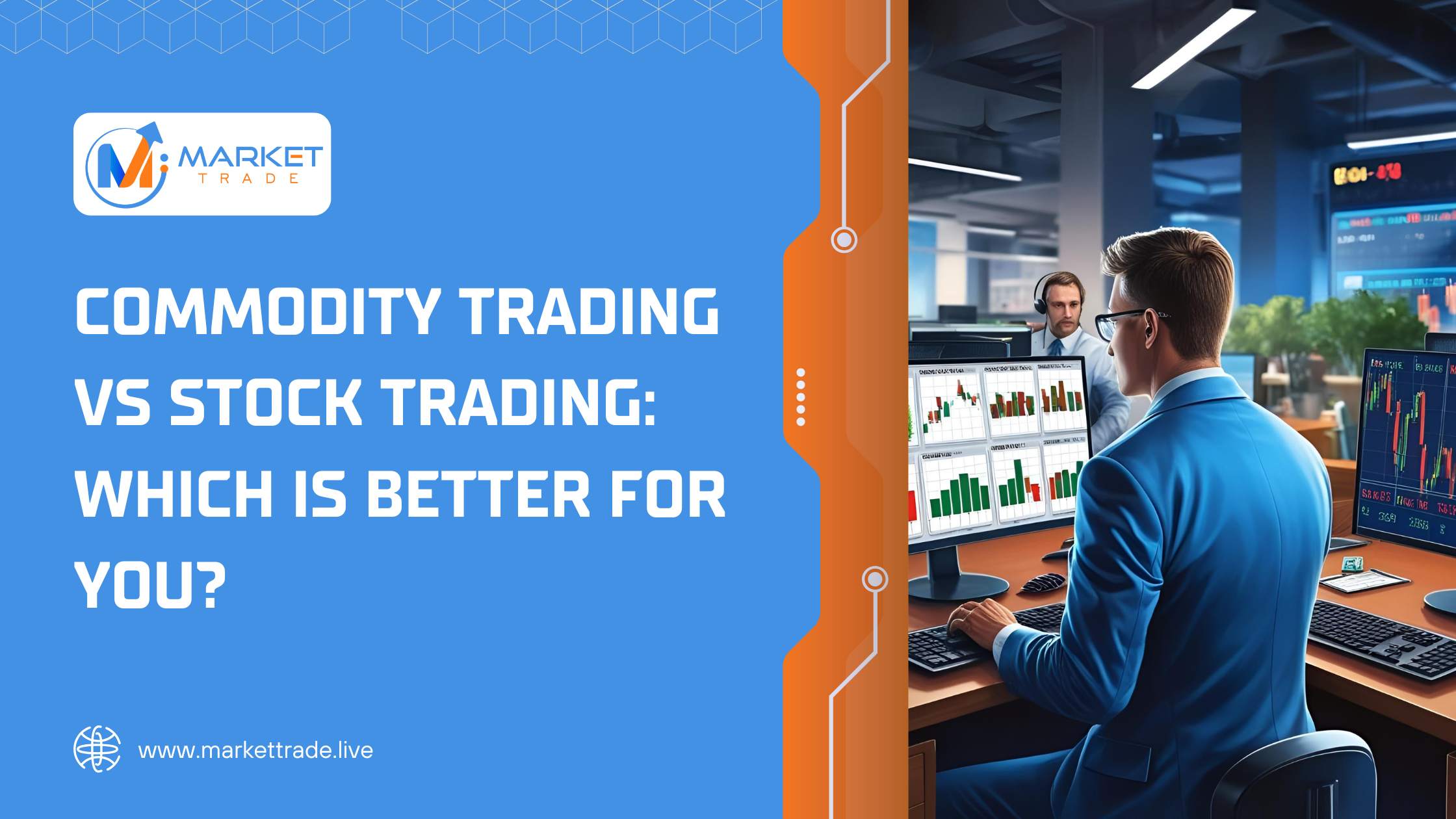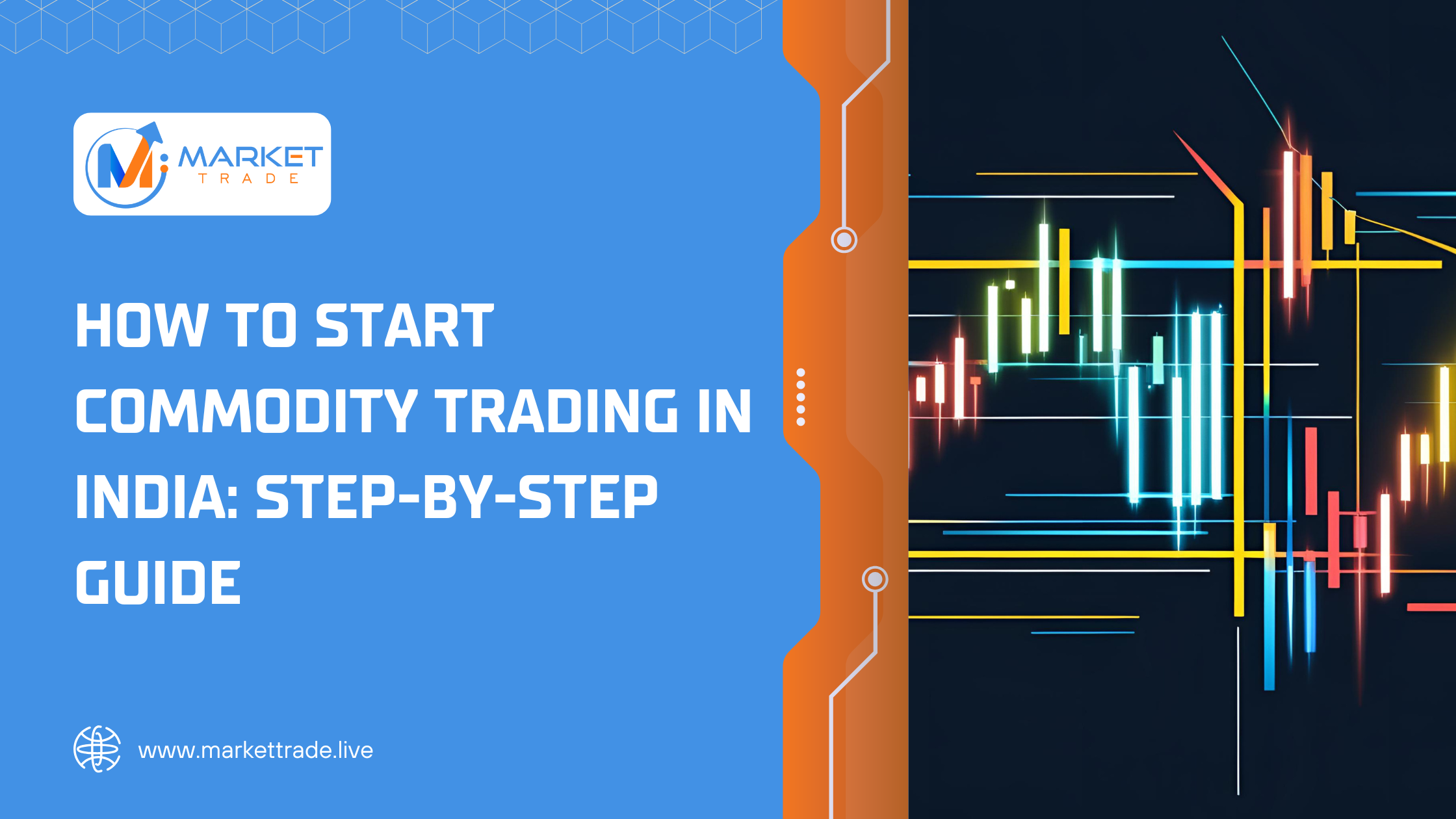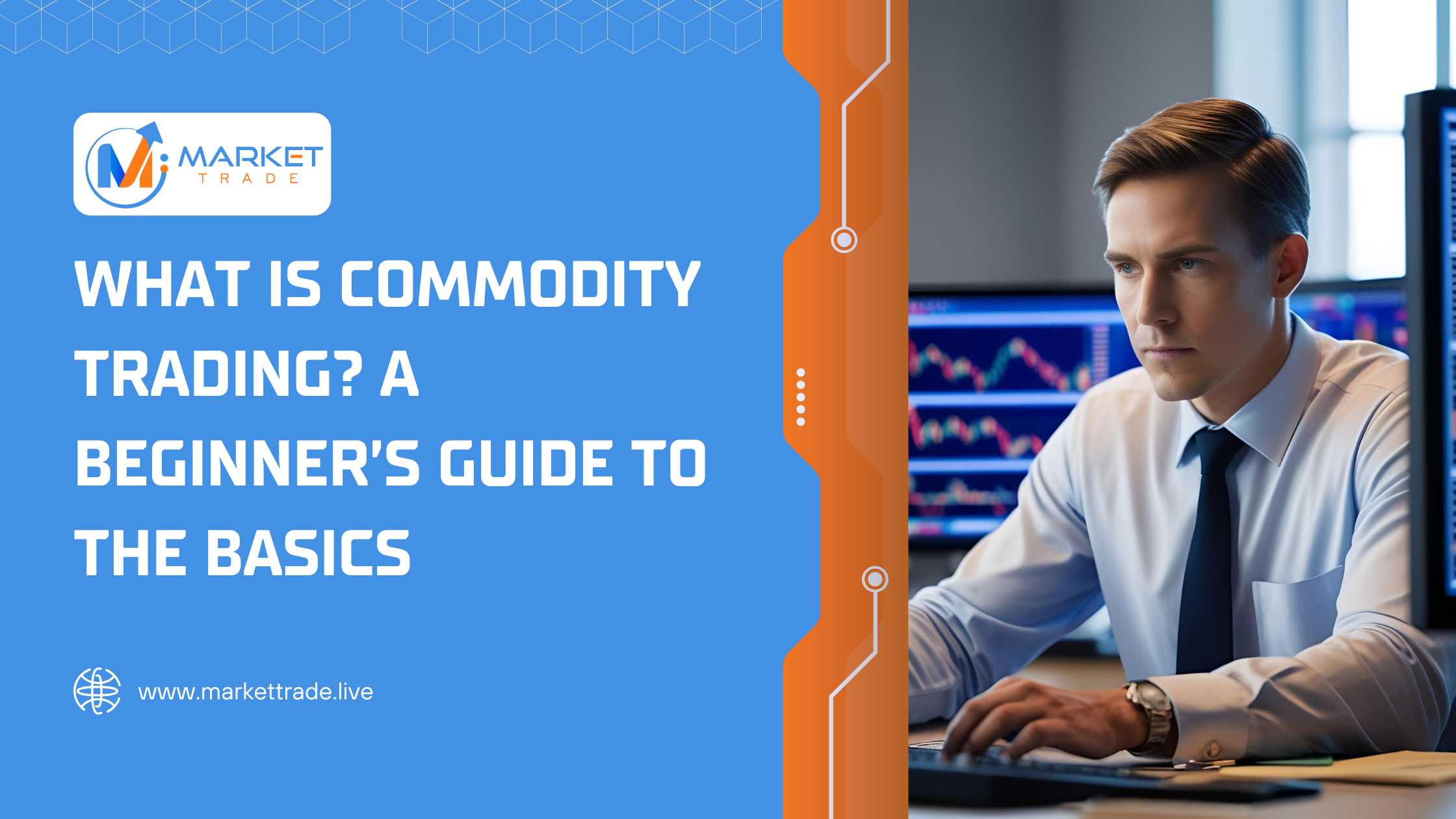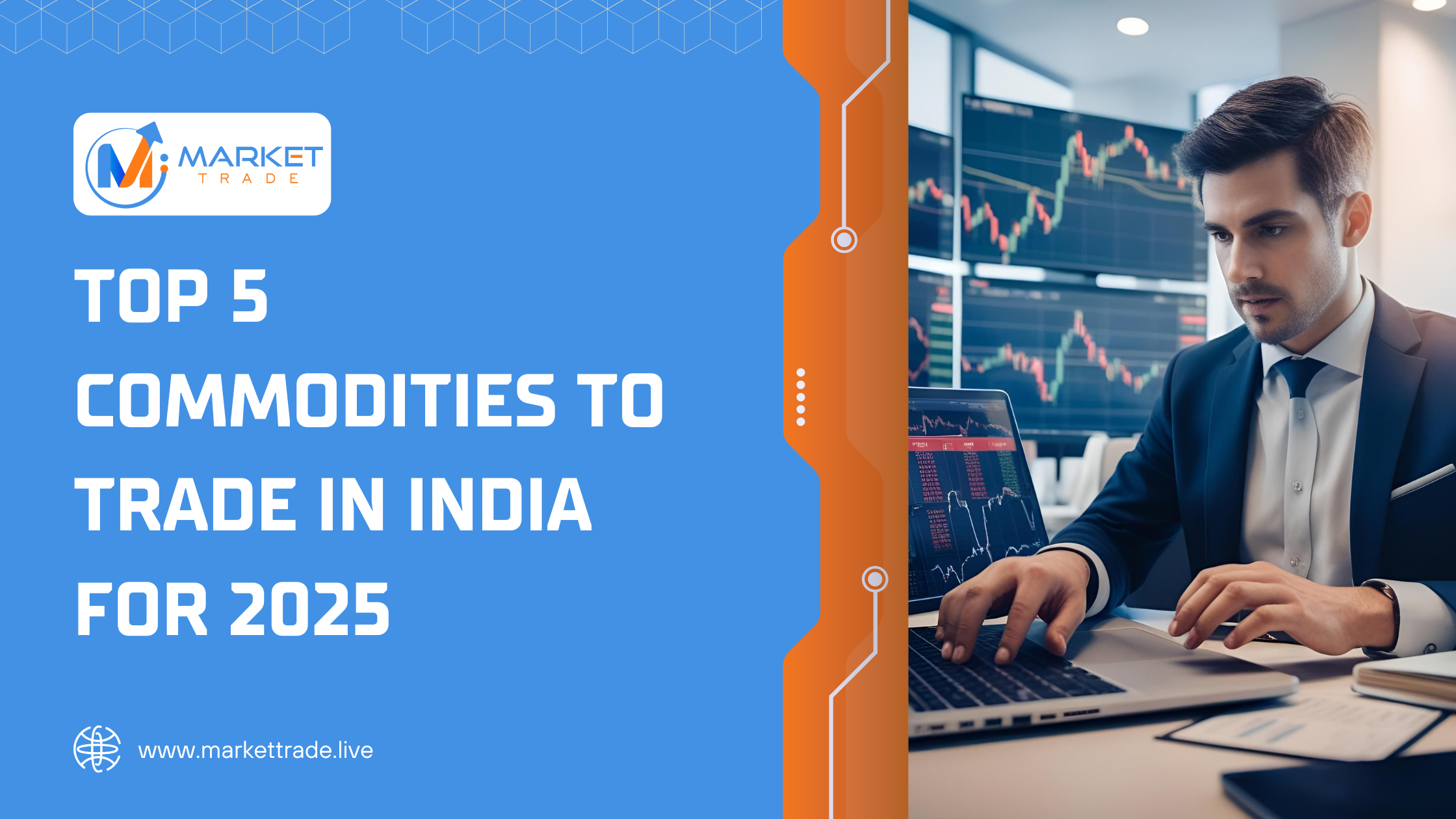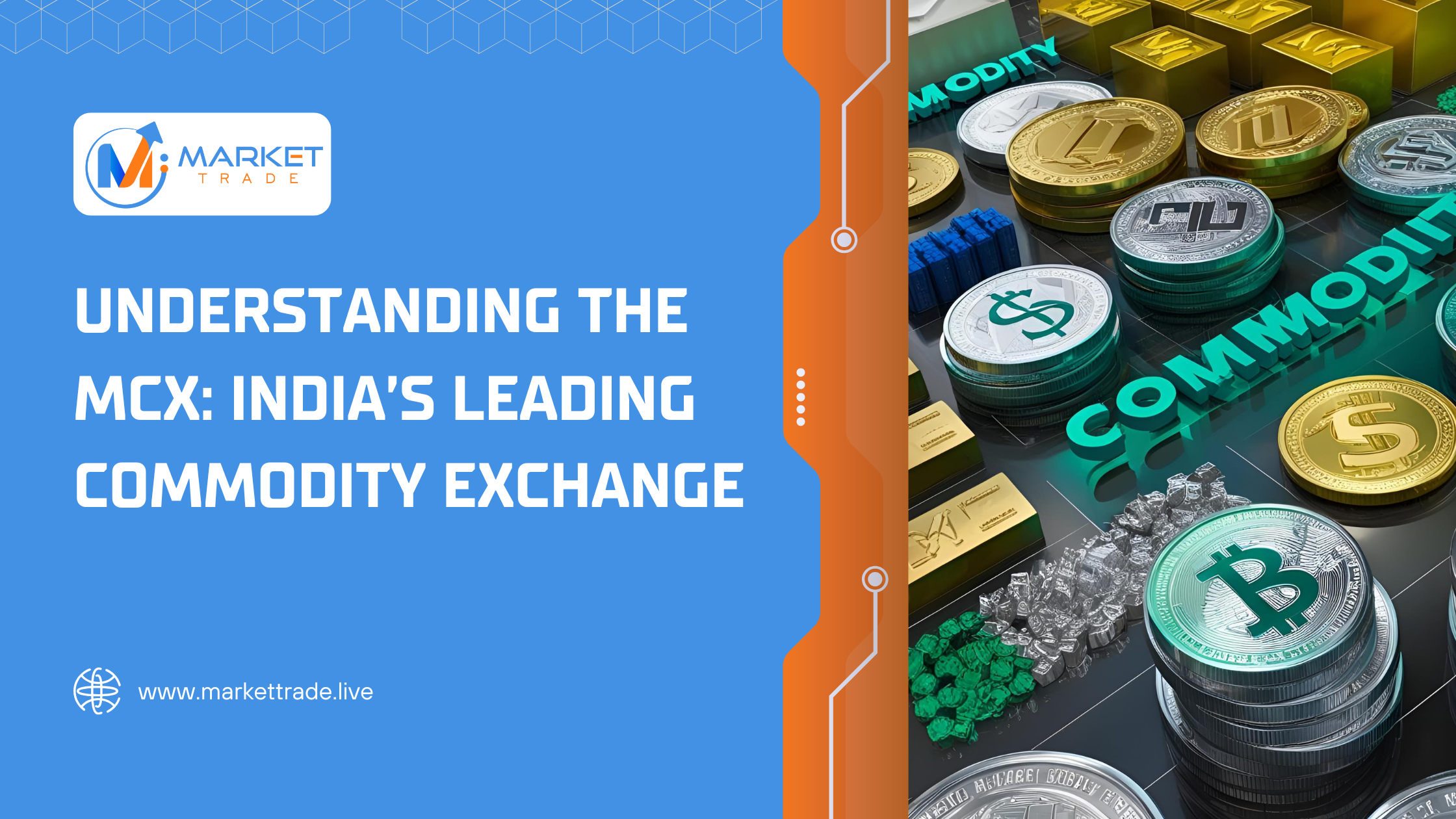
If you’re stepping into the world of commodity trading in India, there’s one name you need to know — MCX, or the Multi Commodity Exchange of India. It’s the beating heart of the Indian commodity market and the go-to platform for trading gold, crude oil, silver, natural gas, and more. But what exactly is MCX, and how does it work? In this blog, we’ll give you a beginner-friendly overview of the MCX, its purpose, benefits, and why it plays a key role in the Indian financial ecosystem — especially for retail traders. 🏛️ What is MCX? MCX (Multi Commodity Exchange of India Ltd.) is India’s first listed commodity futures exchange. It was established in 2003 and is regulated by SEBI (Securities and Exchange Board of India). MCX enables traders to buy and sell commodity derivatives contracts — without owning the physical goods. ✅ Key Facts: Headquartered in Mumbai Publicly listed on the BSE India’s largest commodity derivatives exchange Handles over 90% of India’s commodity futures turnover 📦 What Commodities Are Traded on MCX? MCX offers a wide variety of non-agricultural commodities, which are the most popular among Indian retail traders. 🔹 Metals: Gold Silver Copper Zinc Nickel Lead Aluminium 🔹 Energy: Crude Oil Natural Gas 🔹 Bullion: Gold Mini Silver Mini Gold Guinea These commodities are traded as futures contracts, meaning you speculate on future price movements without physically buying or selling the asset. 📈 How MCX Works: Simplified Here’s how MCX trading functions for retail investors: You register with a SEBI-approved broker (like Market Trade) You choose a commodity (e.g., Crude Oil April Futures) You place a buy or sell order based on your analysis Your trade is executed on the MCX platform You square off your position before expiry or take delivery (if allowed) ✅ Most contracts are cash-settled, meaning no physical delivery — ideal for traders. 🕒 MCX Trading Timings (India) Session Time Morning 9:00 AM – 5:00 PM Evening 5:00 PM – 11:30 PM (11:55 PM for energy & metals) 💡 The evening session overlaps with global markets, making it the best time to trade international commodities like gold and crude oil. 💹 Why Trade on MCX? Here’s why MCX is the preferred platform for Indian commodity traders: ✅ 1. High Liquidity With thousands of contracts traded daily, it’s easy to enter or exit trades. ✅ 2. Transparent Price Discovery Prices reflect real-time global demand and supply, creating fair trading conditions. ✅ 3. Extended Trading Hours Unlike the stock market, MCX is open till 11:30 PM — ideal for working professionals. ✅ 4. Risk Hedging Opportunities Producers, manufacturers, and traders use MCX to hedge against price fluctuations in commodities. ✅ 5. SEBI Regulation As a SEBI-regulated platform, MCX ensures fair practices, secure transactions, and investor protection. 🧠 Who Can Trade on MCX? Anyone who is: 18 years or older A resident of India Has completed KYC documentation Has opened a commodity trading account with a SEBI-approved broker 🎯 Brokers like Market Trade make onboarding 100% digital — account activation within minutes! 📊 Key Terms to Know Term Meaning Futures Contract Agreement to buy/sell a commodity at a fixed price in the future Lot Size Standard unit of measurement for trading a contract Expiry Date Last date to hold the futures position Margin Capital required to enter a leveraged trade Spot Price Current market price of a commodity 🚀 Why Use Market Trade to Access MCX? Market Trade provides everything you need to start and grow as a commodity trader on MCX: Real-time access to MCX commodity contracts Advanced charting tools and indicators Quick order execution & ₹0 hidden charges Crypto & INR deposit options 24/5 customer support ✅ Conclusion The Multi Commodity Exchange (MCX) is the backbone of India’s commodity trading ecosystem. From retail traders to industrial hedgers, MCX offers transparency, liquidity, and opportunity in metals, energy, and more. If you’re looking to diversify beyond stocks or want to take advantage of global price movements, MCX is the perfect starting point. 💼 Ready to Trade Commodities on MCX? 👉 Open your Market Trade account today and start trading gold, crude oil, silver, and other top commodities — with real-time access to India’s leading commodity exchange.


